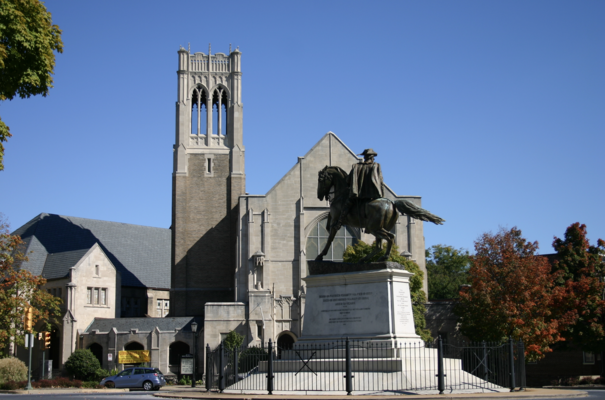Over the next few weeks, we will post about events from the time of our country's founding. The individuals featured in these articles each took a personal risk in support of our country. They did not know what lay before them. There are lessons in these articles we can apply to today's events.
Patrick Henry – The Orator of the Revolution
By Karen Bentley
With special thanks to Joseph Holyoak and his 1776 Moments commentary
Born in 1736, Patrick Henry was just forty years old when he signed the Declaration of Independence, a remarkable feat which contrasted against his early struggles in business. Following his failed ventures, Henry developed an interest in law while observing court cases during his breaks from work at his family-owned tavern.
Within a year, Henry passed the Bar and became a lawyer. Arguing for the plaintiffs in the Parson’s Cause, he stated that England did not have the right to tell the colonies how to set their prices and run their lives. Henry won the case and became well known for his approach– arguing more broadly for colonial sovereignty than more directly on behalf of his client. He was subsequently elected to the Virginia State Legislature, the House of Burgesses, which called the Virginia Commonwealth Convention in 1775.
Meeting in Richmond to minimize the possibility of government loyalists interfering with the Convention, delegates came together to debate whether or not to prepare their state militias for war.
After speeches from three British loyalists, Henry gave an impassioned speech urging independence from England. Through his gift of oratory, he laid out why loyalism was not a tenable position, concluding with this famous quote: “Is life so dear, or peace so sweet, as to be purchased at the price of chains and slavery? Forbid it almighty God! I know not what course others may take; but as for me, give me liberty or give me death!”
The representatives were so greatly affected by Henry’s fiery speech that no additional speeches were given and the majority voted to begin preparing the militia for war.
Patrick Henry was willing to stand up for what he believed in; he was willing to voice what others were not willing to voice, risking the charge of treason and his life in the process. In our pre-Constitutional days, taking up arms was necessary to affect change. Today, we are privileged to have Article V of the United States Constitution as a vehicle through which we can bring power back to its rightful place, the States and the people of this great country.
Today, like in the days of Patrick Henry, it is not easy nor popular to stand up for what is right. May we bear in mind the lesson of courage and bravery from this great American patriot as we work toward affecting change in Washington through a Convention of States.


